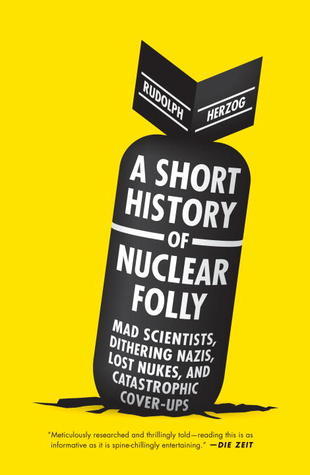
The Plutonium Files: America's Secret Medical Experiments in the Cold War
Book Description
What happens when the quest for national security collides with the sanctity of human life? In "The Plutonium Files," Eileen Welsome unveils the chilling truth behind America's secret medical experiments during the Cold War. Dark and shocking, this gripping narrative reveals a hidden chapter of history where citizens became unwitting subjects in a dangerous game of science and power. From covert testing to ethical violations, the tale unfolds like a thriller, exposing the lengths to which the government went to push the boundaries of knowledge. How far will humanity go in the name of progress, and at what cost?
Quick Book Summary
"The Plutonium Files" by Eileen Welsome uncovers the disturbing legacy of clandestine medical experiments conducted by the U.S. government during the Cold War. Spurred by fears of nuclear conflict and a desire to understand the effects of radiation, scientists and officials subjected hundreds of unwitting Americans—hospital patients, soldiers, prisoners, and children—to hazardous doses of radioactive substances. The book painstakingly documents these experiments, the secrecy surrounding them, and the bureaucratic rationales that allowed them to continue for decades. Through thorough research and compelling storytelling, Welsome reveals the ethical violations, the suffering of victims, and the complex intersection between scientific progress, military necessity, and human rights.
Summary of Key Ideas
Table of Contents
The Ethics and Dangers of Secret Human Experimentation
In the aftermath of World War II, the onset of the Cold War prompted American authorities to prioritize national security and scientific advancement above all else. Driven by anxiety over nuclear warfare and the unknown effects of radiation, government agencies collaborated with leading scientists to embark on experiments that would test the limits of human exposure to radioactive materials. The urgency to surpass global adversaries like the Soviet Union rationalized a culture of secrecy where ethical guidelines were routinely ignored or circumvented.
National Security versus Individual Rights
Ordinary Americans—patients in hospitals, inmates, military recruits, and even children—became subjects in a wide array of covert medical experiments. Often lacking their consent or knowledge, these individuals were exposed to dangerous doses of plutonium, uranium, and other radioactive elements. The book meticulously details specific cases, including elderly hospital patients injected with plutonium and vulnerable children at institutions given radioactive oatmeal. Medical professionals and scientists, pressed by government pressure and Cold War mania, justified their actions in the name of science and national security.
Secrecy, Accountability, and the Media
Welsome investigates the complex bureaucracy that facilitated and obscured the experiments. Layers of government secrecy, compartmentalized agencies, and classified documentation shielded these activities from public scrutiny. When suspicions or complaints arose, officials often dismissed or discredited them—instituting a practice of plausible deniability and information suppression. The complicity stretched from top-level policymakers to local institutions, creating an almost impenetrable wall against external accountability.
The Human Cost of Scientific Progress
The book also explores the devastating human cost incurred by these efforts. Many subjects developed severe health complications—cancers, chronic illnesses, and psychological trauma—yet few received acknowledgement or compensation. Families of victims faced institutions unwilling to admit wrongdoing. Welsome’s narrative brings to life the suffering, confusion, and betrayal endured by those used as test subjects, emphasizing the profound moral failings at the heart of this dark episode in American medical history.
The Long Road to Justice and Public Recognition
Years later, investigative journalism—including Welsome’s own Pulitzer-winning reporting—triggered Congressional hearings, declassified documents, and public outcry. The government was eventually forced to acknowledge and investigate its past actions, culminating in muted apologies and some reparations. "The Plutonium Files" not only chronicles a hidden chapter of American history but also raises enduring questions about bioethics, government transparency, and the sometimes dangerous pursuit of knowledge at any cost.
Download This Summary
Get a free PDF of this summary instantly — no email required.





